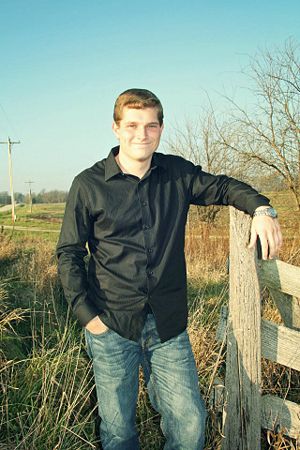| Line 31: | Line 31: | ||
** Very good question Bhakti! During my senior year I considered continuing on to get a Masters & decided industry instead. Even now I am considering doing a part time Masters. Now that I have seen want industry is all about, I do not feel the need to return to get a post Bachelors degree. However, I will say that a post Bachelors degree will help set you a part from other graduates. I have not seen many jobs that request you do have more than a Bachelors in Engineering, but I have seen several job postings that state, "Masters highly recommended but not needed." With that, I'll leave it up to you to decide which level of education is right for you. The more educated you become, the more doors become open. But keep in mind, more education can close doors too. It just depends what doors you want opened in life. | ** Very good question Bhakti! During my senior year I considered continuing on to get a Masters & decided industry instead. Even now I am considering doing a part time Masters. Now that I have seen want industry is all about, I do not feel the need to return to get a post Bachelors degree. However, I will say that a post Bachelors degree will help set you a part from other graduates. I have not seen many jobs that request you do have more than a Bachelors in Engineering, but I have seen several job postings that state, "Masters highly recommended but not needed." With that, I'll leave it up to you to decide which level of education is right for you. The more educated you become, the more doors become open. But keep in mind, more education can close doors too. It just depends what doors you want opened in life. | ||
*Mr. Rayburn, even though you are still currently in your first rotation with Ingersoll Rand's Professional Development Program, have you seen some advantages to participating in a development/rotational program after graduation as opposed to a non-rotational position? Are there any disadvantages related to development/rotational programs? - Joshua Marchi | *Mr. Rayburn, even though you are still currently in your first rotation with Ingersoll Rand's Professional Development Program, have you seen some advantages to participating in a development/rotational program after graduation as opposed to a non-rotational position? Are there any disadvantages related to development/rotational programs? - Joshua Marchi | ||
| + | *Mr. Rayburn, I know many people end up taking full-time positions with the companies they intern with. Why did you decide to move on to another company after you graduated? - John Jachna | ||
*Write a question here. | *Write a question here. | ||
---- | ---- | ||
[[2012_Spring_ECE_400|Back to ECE400 Spring 2012]] | [[2012_Spring_ECE_400|Back to ECE400 Spring 2012]] | ||
Revision as of 12:06, 19 February 2012
Meet Ryne Rayburn, virtual guest for ECE400 Spring 2012
Ryne was unable to make it to our young alumni panel. We thus invited him to participate in a "virtual alumni panel". Please go ahead and ask him questions below. He will answer them directly on this page!
Name: Ryne Rayburn
Hometown: Attica, Indiana
Graduated from Purdue in May 2011 with a BS in Computer Engineering
Activities at Purdue:
- PSEF (Active 2006-2011; President 2010, VP of Communication 2009)
- PEPC (Co-President 2010)
- HKN (Active 2010-2011)
- TBP (Active 2009-2011)
- Teaching Assistant for CS159, 2009-2011
- Internship with John Deere in Waterloo, Iowa in summer 2010
- Undergraduate research with Dr. Brown, ECE
- Sports & other activities with friends
Post Purdue:
- Professional Development Program with Ingersoll Rand (2 year development program)
- You work full-time through the program, starting as a hardware or firmware engineer in New Product Engineering for the first year. After 12 months, you rotate into Systems Test or Sourcing for 6 months & then spend the final 6 months in product management.
- Currently, I am working as a firmware engineer with the prospect of moving into Systems Test in Summer 2012
Ask your questions to Ryne Rayburn below
- Mr. Rayburn, after working in the industry for about a year, do you feel the need to get a MS/MBA/Ph.D? -Bhakti Khandagale
- Very good question Bhakti! During my senior year I considered continuing on to get a Masters & decided industry instead. Even now I am considering doing a part time Masters. Now that I have seen want industry is all about, I do not feel the need to return to get a post Bachelors degree. However, I will say that a post Bachelors degree will help set you a part from other graduates. I have not seen many jobs that request you do have more than a Bachelors in Engineering, but I have seen several job postings that state, "Masters highly recommended but not needed." With that, I'll leave it up to you to decide which level of education is right for you. The more educated you become, the more doors become open. But keep in mind, more education can close doors too. It just depends what doors you want opened in life.
- Mr. Rayburn, even though you are still currently in your first rotation with Ingersoll Rand's Professional Development Program, have you seen some advantages to participating in a development/rotational program after graduation as opposed to a non-rotational position? Are there any disadvantages related to development/rotational programs? - Joshua Marchi
- Mr. Rayburn, I know many people end up taking full-time positions with the companies they intern with. Why did you decide to move on to another company after you graduated? - John Jachna
- Write a question here.


